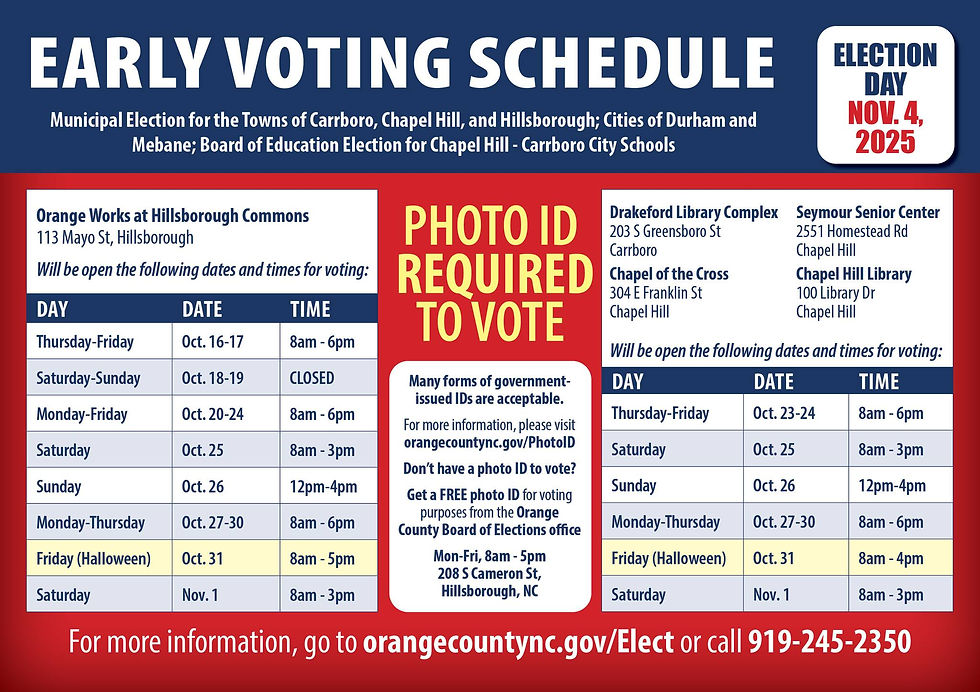April Marks Financial Literacy Month
- Chapel Hill Carrboro NAACP
- Apr 27, 2021
- 2 min read
At a time when an examination of wealth in the U.S. finds evidence of staggering racial disparities, the NAACP is working hard to promote economic development.
Gaps in wealth between Black and white households reveal the effects of accumulated inequality and discrimination, as well as differences in power and opportunity that can be traced back to this nation’s inception.
At $171,000, the net worth of a typical white family is nearly ten times greater than that of a Black family ($17,150), as of 2016. The Black-white wealth gap reflects a society that has not and does not afford equality of opportunity to all its citizens.
That’s one of the reasons the Chapel Hill-Carrboro NAACP branch organized its Economic Development Committee in 2021. The committee seeks to explore issues related to these disparities as well as ways to close the gap in line with the programs of the National NAACP.
In addition to promoting support of minority businesses, advocating living wages for all workers and reparations, the Economic Development Committee will promote financial literacy and education.
We mention it now because April is National Financial Literacy Month, which is the perfect time to get involved with this committee! Email our co-chairs today if you’re interested in learning more, or just join us for our monthly committee meeting, the third Monday of every month.
A bit of history
National Financial Literacy Month grew out of Youth Financial Literacy Day, which originated with the National Endowment for Financial Education (NEFE) as an activity of its High School Financial Planning Program.
NEFE passed responsibility for Financial Literacy Day over to the Jump$tart Coalition which now promotes it with its partner organizations. Jump$tart Coalition began promoting April as Financial Literacy for Youth Month in 2000. The title was eventually shortened to Financial Literacy Month.
During Financial Literacy Month in 2006, The Financial Literacy and Education Commission unveiled a new national strategy in their report "Taking Ownership of the Future: The National Strategy for Financial Literacy."
The report outlined a series of outreach and education goals for the public and private sectors aimed to help Americans improve their understanding of financial issues such as credit management, savings, and home ownership.
How can you help?
Join us for an Economic Development Committee meeting (the third Monday of each month) or reach out to the co-chairs for more information.




Comments